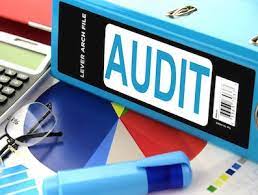Obtaining accepting and continuing audit engagements
Introduction:
In the realm of financial oversight, audit engagements play a pivotal role in ensuring the accuracy and integrity of financial statements. They serve as guardians of transparency and trust between stakeholders and the entities they invest in or rely upon. However, the journey of obtaining, accepting, and continuing audit engagements is a multifaceted process that requires careful consideration, diligence, and ethical adherence. This article explores the intricacies of this process, highlighting the key steps involved and the critical factors that auditors must navigate to uphold professional standards and deliver value to their clients and stakeholders.
Obtaining Audit Engagements:
The process of obtaining audit engagements begins with establishing credibility and trust in the marketplace. Audit firms often invest significant resources in building their reputation through consistent delivery of high-quality services, adherence to regulatory standards, and cultivating relationships with potential clients. Marketing efforts, such as thought leadership publications and participation in industry events, also play a crucial role in showcasing expertise and attracting prospective clients.
Once a potential client expresses interest in engaging audit services, the auditor conducts a preliminary assessment of the client’s business and financial situation. This assessment helps determine the scope of the audit engagement, potential risks involved, and the resources required to execute the audit effectively. Clear communication of expectations, timelines, and fees is essential during this stage to ensure mutual understanding and alignment between the auditor and the client.
During the proposal phase, auditors prepare a comprehensive proposal outlining their approach, methodology, team composition, and expected deliverables. This proposal serves as a blueprint for the audit engagement and provides clients with insights into the value proposition offered by the audit firm. Client-specific considerations, such as industry regulations, organizational structure, and risk profile, are carefully incorporated into the proposal to tailor the audit approach to the client’s unique needs and circumstances.
Upon acceptance of the proposal, formal engagement letters are issued, detailing the terms and conditions of the engagement, including the scope of work, responsibilities of both parties, and fee arrangements. The engagement letter serves as a contractual agreement that sets the foundation for the audit engagement and establishes the expectations and obligations of both the auditor and the client.
Accepting Audit Engagements:
Accepting audit engagements requires a thorough evaluation of various factors to ensure that the auditor possesses the necessary competence, independence, and resources to perform the engagement effectively. The International Standards on Auditing (ISA) provide guidance on the criteria for accepting audit engagements, emphasizing the importance of professional skepticism, integrity, and ethical conduct.
Key considerations in accepting audit engagements include assessing the client’s integrity, management’s competence, and the risk of material misstatement in the financial statements. Auditors conduct due diligence procedures to evaluate the client’s reputation, regulatory compliance, and adherence to accounting standards. Additionally, auditors assess the adequacy of the client’s internal controls and governance structure to mitigate the risk of fraud or error.
Independence is a fundamental principle in auditing, ensuring objectivity and impartiality in the audit process. Auditors must maintain independence in both fact and appearance, avoiding conflicts of interest or undue influence that could impair their judgment or integrity. Independence safeguards the credibility and integrity of the audit profession, instilling confidence in stakeholders and enhancing the reliability of audit reports.
In cases where potential threats to independence exist, auditors are required to apply safeguards to mitigate these threats or, if necessary, decline the engagement to preserve independence and uphold professional ethics. Transparency and disclosure of any relationships or interests that may compromise independence are essential for maintaining integrity and trust in the audit process.
Continuing Audit Engagements:
Once an audit engagement is accepted, the focus shifts to executing the audit plan, gathering sufficient and appropriate audit evidence, and evaluating the client’s financial statements for accuracy and compliance with accounting standards. Continuous communication and collaboration between the auditor and the client are essential throughout the audit process to address any emerging issues or changes in circumstances promptly.
Auditors employ a risk-based approach to identify and assess significant risks of material misstatement in the financial statements, focusing audit procedures on areas with the highest risk of error or fraud. Utilizing analytical procedures, substantive testing, and inquiry techniques, auditors gather audit evidence to support their conclusions and provide assurance on the fairness and reliability of the financial statements.
As auditors navigate the complexities of the audit engagement, they remain vigilant for signs of fraud, manipulation, or irregularities that may impact the integrity of the financial statements. Professional skepticism is a cornerstone of the audit profession, empowering auditors to question assumptions, corroborate evidence, and challenge management representations to uncover potential discrepancies or inconsistencies.
Upon completion of the audit procedures, auditors evaluate the overall audit findings, assess the quality of audit evidence obtained, and form an opinion on the fairness of the financial statements. The audit report communicates the auditor’s opinion to stakeholders, providing assurance on the reliability of the financial information and highlighting any significant findings or concerns identified during the audit process.
Conclusion:
Obtaining, accepting, and continuing audit engagements require a comprehensive understanding of professional standards, ethical principles, and regulatory requirements. Auditors play a critical role in safeguarding the integrity of financial reporting and fostering trust and transparency in the marketplace. By adhering to rigorous standards of quality, independence, and integrity, auditors can deliver value to their clients and stakeholders, enhancing confidence in the reliability and credibility of financial information. As guardians of accountability and transparency, auditors uphold the highest standards of professionalism and ethical conduct, ensuring the integrity and credibility of the audit profession.
Obtaining accepting and continuing audit engagements
